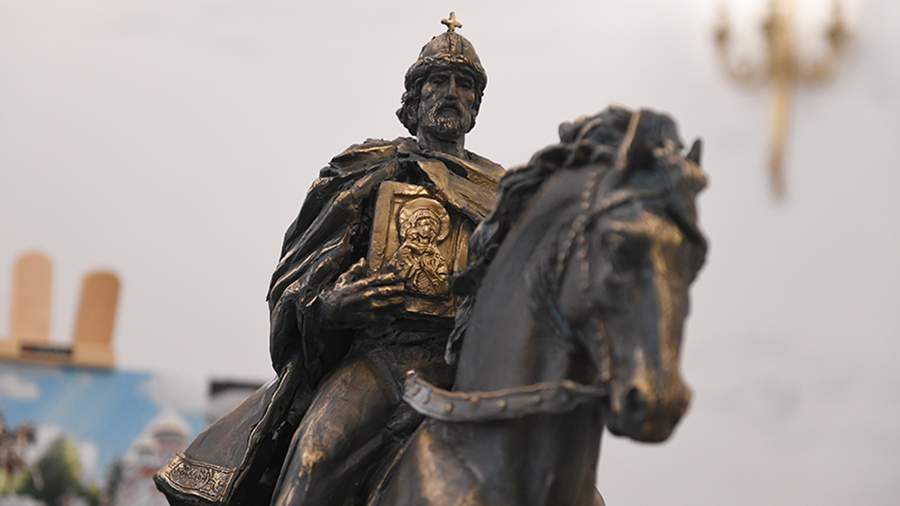December 6 - Alexander Nevsky Memorial Day: history and traditions of the holiday
- Новости
- Local news
- December 6 - Alexander Nevsky Memorial Day: history and traditions of the holiday

Every year on December 6, the Orthodox Church honors the memory of St. Blessed Prince Alexander Nevsky - a brave defender of Russia, diplomat and ascetic. In 2024 the celebration falls on Friday. On the history and traditions of the holiday read in the material "Izvestia".
Memorial Day of Alexander Nevsky December 6 - history
Alexander Nevsky was born in 1221 in Pereslavl-Zalessky. From early childhood he learned the basics of military art and public administration, accompanied his father, Yaroslav, in military campaigns. In 1235 young Alexander distinguished himself in the battle against Germans on the river Emajõgi (modern territory of Estonia), and in 1236 he began to reign in Novgorod.
At the end of 1230th for Russia there came hard times. From the east there was an invincible Mongol army leaving scorched cities behind, and from the west German and Swedish knights were approaching the borders of the state.
In 1240 Swedish ships approached the place where the Izhora River flows into the Neva River. Alexander Nevsky decided to be the first to attack the enemy. Before the battle he prayed for a long time in the temple of St. Sophia and received a blessing from the archbishop. According to legend, coming out of the temple, the prince encouraged the army with the famous words "God is not in strength, but in truth".
Legend also says that at dawn before the battle, a warrior on sea watch saw a rook floating on the waves. On board in scarlet robes stood the martyrs Boris and Gleb, and were talking about the upcoming victory of the Russian commander. Indeed, on July 15, 1240 Alexander Nevsky with a small retinue defeated a large Swedish army, showing exceptional courage.
However, the valiant prince did not stop there. In 1241 he repulsed the German captured fortress Koporie near the Gulf of Finland. In the winter of the next year he rid Pskov of invaders, and in April 1242 there was a legendary battle on the ice of Lake Peipsi, which was called the Ice Battle. As a result, the German knights suffered a crushing defeat and were forced to retreat.
Alexander Nevsky became famous not only as a military commander, but also as a skillful diplomat. During his reign he visited the Golden Horde four times, diverting punitive raids of Tatar troops from Russia. In 1261 he also achieved the establishment of the Russian diocese in Sarai, so that his compatriots living in the Horde and baptized Tatars could perform divine services.
The fourth trip to the Khan's headquarters in 1263 was the last one for Alexander Nevsky. On the way back the prince fell ill and died near Vladimir. Shortly before his death he took a tonsure under the name Alexis.
The incorruptible relics of the prince were found in 1381, 117 years after his death. Metropolitan Cyprian of Moscow, who witnessed the miracle, ordered Alexander Nevsky to be called blessed. Then began his local veneration in the Vladimir lands. And in 1547 the prince was officially numbered among the saints.
Traditions of Alexander Nevsky Memorial Day in 2024
On the day of the memory of Alexander Nevsky, solemn services are held in Russian churches. The faithful pray to the holy prince, asking him to continue to protect the Russian people from enemies and other dangers. Alexander Nevsky is especially revered by warriors and diplomats, who consider him their heavenly patron.
Interesting facts about Alexander Nevsky
In honor of the holiday "Izvestia" collected several interesting facts about Alexander Nevsky.
Prince Alexander Nevsky began to be called for his victory over the Germans at the Neva River in 1240. However, this nickname did not appear in the XIII century, as many believe, and in XV. Contemporaries respectfully called Prince Brave for his numerous victories on the battlefield.
When it comes to the battle on Lake Peipsi, many remember a vivid episode - heavy German cavalry goes out on the April ice and falls into the icy water, losing the advantage over the Russian soldiers in light chain mail. However, historians believe that this is a myth. There is no description of this event in any of the early chronicles, and modern research shows that the armament and ammunition of both sides were about the same. In addition, winters in the Lake Peipsi area are harsh, and a thick ice cover can persist even in spring.
After defeating the Swedes in 1240, Alexander Nevsky, then Prince of Novgorod, returned home in triumph. However, despite the people's love, in 1241 the city's inhabitants drove the prince out of their lands. The fact is that at that time in Novgorod established a republic, and the main decisions were taken at the people's assembly - the veche. Seeing the increased influence of Alexander, the freedom-loving Novgorodians were afraid that he would become the sole ruler, and asked him to leave.
Earlier "Izvestia" told about the history and traditions of celebrating the Cathedral of Archangel Michael.
Переведено сервисом «Яндекс Переводчик»
